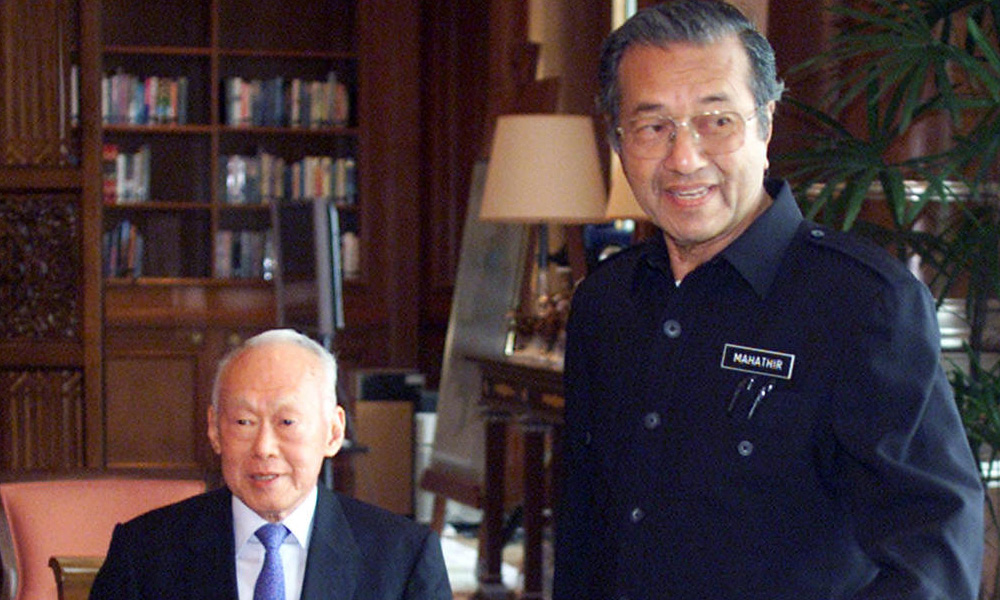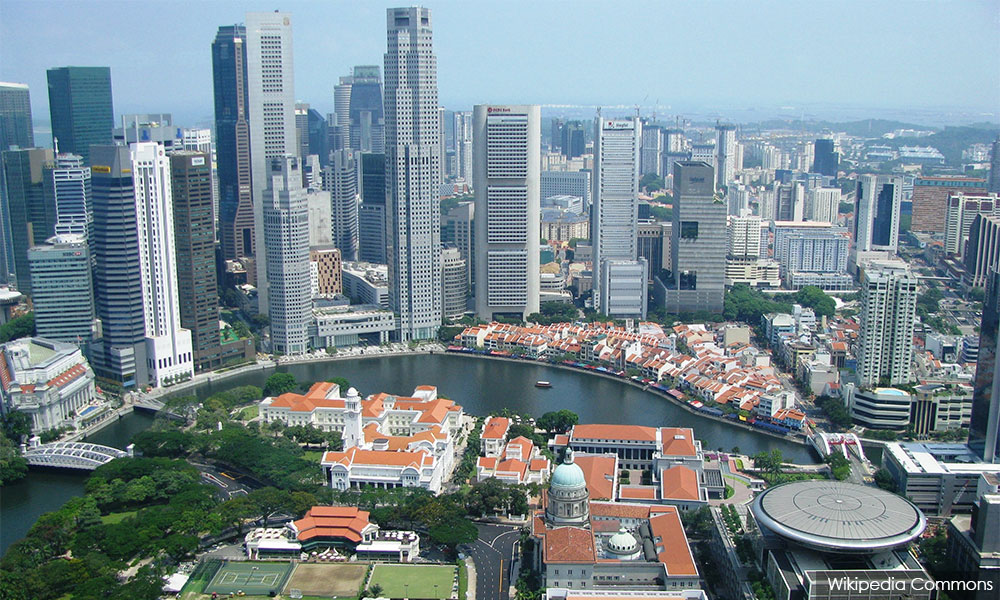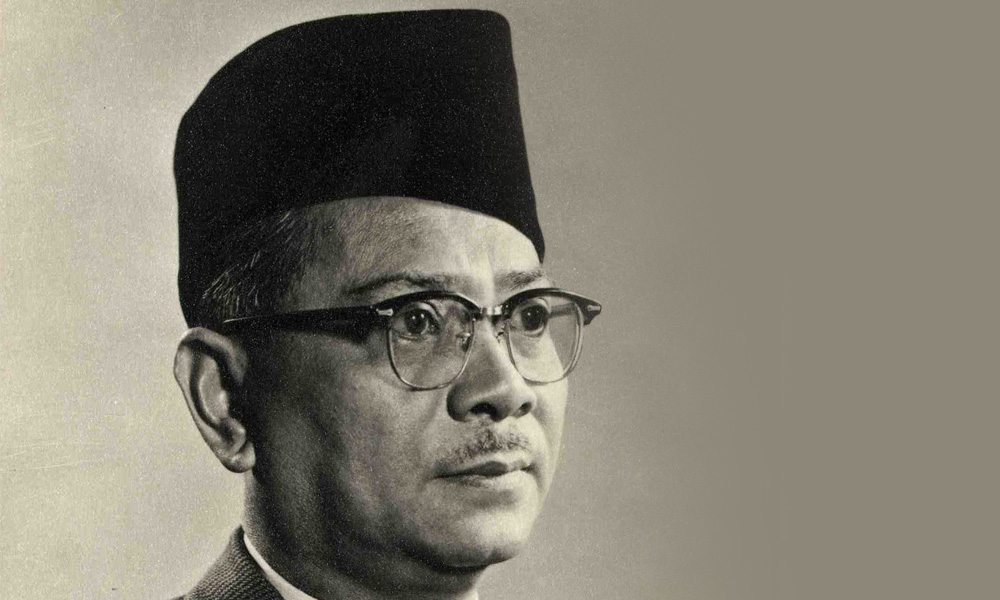
Pundits have mused on the similarities and differences between Dr Mahathir Mohamad and Singapore's progenitor, Lee Kuan Yew, who died in March 2015.
Some time back this news portal intrigued readers with a disquisition by a longtime Singaporean observer of the political goings-on in this region, on how the two strongmen were alike and different.
Because Mahathir's and Lee's lives were contemporaneous, spanning the period from pre-colonial times to their countries' struggle for independence and its aftermath, and because their careers were similarly engaged in forging their polities in the postcolonial era, the temptation is there to dwell on parallels and contrasts.
The fact they were rivals of sorts in Malaysia's Parliament between April 1964 (when Mahathir was elected to the Lower House on an Umno ticket, while Lee was a member of the PAP contingent from Singapore) and August 1965, when Singapore was expelled, lends frisson to the exercise of comparison and contrast.
Early duels between them in the chamber marked them out as men of destiny whose careers would likely crisscross. When it turned out they wound up being in similar pole positions in steering their countries, there was a certain inevitablity to the political salons' parlour game of comparing and differentiating between them.
The obvious similarities are their longevity of tenure and implacablity of will. Leaders of lengthy tenure are by definition leaders of singular determination. One cannot be long in the saddle if not determined and focused, not merely on accomplishing tasks, but in transmuting dreams into reality. And that necessarily requires long tenancies.
Mahathir's attention was fastened on turning Malaysia from an agricultural into an industrial nation; Lee's was on transforming a malarial backwater, albeit one gifted with a natural harbour, into a modern city-state.

A not so obvious resemblance is in how each had his eyes firmly fixed on acquiring power, with Mahathir better at being able to wait for his chance to reach for the top.
While having his eyes firmly fixed on the chance of getting ahead in the political chase in Singapore, Lee's impatience to become numero uno of Malaysia is now regarded as having contributed to the break-up in 1965 of the mergger of Malaya, Singapore, Sarawak and Sabah that made up the Malaysian federation in 1963.
Both were singularly focused on the main chance, but Mahathir was better at waiting for what the philosopher William James called the “receptivities of the moment” upon which leadership was dependent.
Another marked similarity is that their memory is long for what they considered to be treachery by others, both discharging their rancour in retributive acts once opportunity availed.
This long memory also encompassed gratitude to others who had helped them in the climb up the greasy pole, though Lee's could curdle into vengeance if former allies turned against him. Lee's treatment of ally-turned-adversary Devan Nair was testimony of that; Mahathir was better able at exercising restraint in comparable straits.
Authoritarians both, Lee took a sledgehammer to his adversaries. By contrast, Mahathir does not opt for the bludgeon when he can lure adversaries to self-destruction. As political operators, their outlook took more from Nicolo Machiavelli than from John Locke.
On a significant marker – significant because they operated in racially and religiously plural societies – both were pessimistic about people's ability to transcend the bounds of race and religion, a pessimism that would nudge them into the racist, if not sectarian, category.
Come to think of it, the two leaders are essentially more similar than different. Now in the winter of Mahathir's career, he shares a biographical similarity with Lee. Mahathir worked hard - like Lee via-a-vis the formation of Malaysia in 1963 - to form and help Harapan gain federal power.
Lee's motive in striving to form Malaysia was to strip opponents, Barisan Sosialis (BS), of the capability to oust PAP from power in Singapore. (BS was destroyed as PAP's electoral opponents through sweeping use of the Internal Security Act in Operation Cold Store in 1963).
Now, after 17 months of Harapan's federal incumbency, it is clear that Mahathir's motive in enlisting in and empowering Harapan was to destroy Umno, not so much supplant Unmo's Malay and Islamic hegemony with Harapan's quest for an egalitarian Malaysia.
In a final parallel between Lee's and Mahathir's careers, what they once worked hard to form, they then strove to unravel.
Once in Malaysia, Lee worked to destroy it by stoking the fears of the Malays that he was going to upend their primacy within the intricate balance between the races that held the Malaysian mosaic together.
More than a year after a Mahathir-led Harapan ejection of Umno, its supremo is at work breaking it up, by replacing Harapan's multiracialism with Umno-like pandering to race.

A stung and incredulous Tunku Abdul Rahman (above), whom Lee courted to form Malaysia, had to throw Lee out to save the remnant.
But an aggrieved and dumbfounded Harapan cannot do what the Tunku did to Lee; Mahathir has lured Harapan to impotence. The master of dissembling and ambiguity has confounded his allies and adversaries.
But nobody is cheering.
TERENCE NETTO has been a journalist for more than four decades. - Mkini



No comments:
Post a Comment
Note: Only a member of this blog may post a comment.